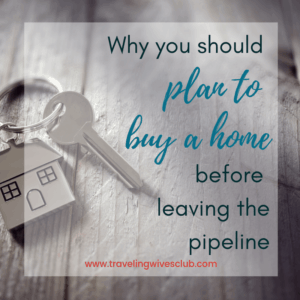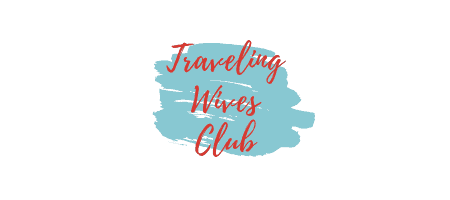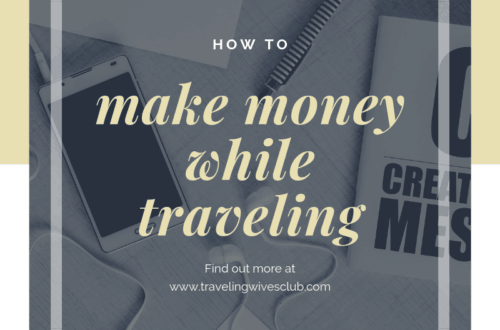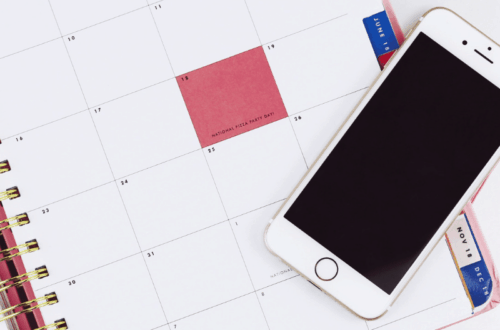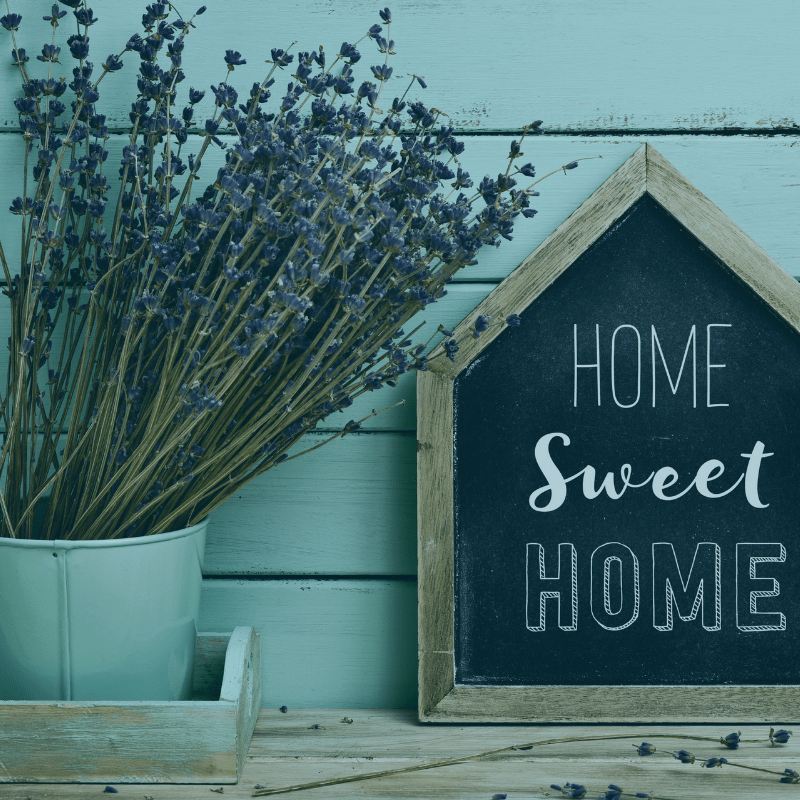
Why you should plan to buy a home before leaving the pipeline
Wouldn’t it be nice to have your “forever” home paid off before you leave the pipeline? How amazing would it be to have ZERO debt too?! Read more to find out why you should plan to buy a home before leaving the pipeline.
I say “forever” because it really can be difficult to determine if that will be the home you will live in for the rest of your lives but it can certainly be the goal. We bought our home with the intention of settling down for the kids so that they could establish friends and be a bit closer to family.
Looking back at our previous home purchases, it would have been difficult to make them our “forever” home. Our family doubled in size and then we added my parents to our home as well. That little 1200 sq ft ranch would have been a tight fit for all of us and our things.
Luckily, when we chose to buy and then again, when we chose to sell it worked out in our favor and we were able to make a profit to help go towards debt and our savings for the next purchase.
These previous purchases allowed us to build up some savings and knock out some debt so that this was an option for us when we were ready to start thinking more about our future.
Here are just some of the reasons we thought it was a good idea to plan to buy a home before leaving the pipeline…
Pay down now with the potentially larger income
If you have little to no debt besides your home left you can take anything extra and apply it to the home. This will help pay things down even quicker and save you interest! Also, depending on how early on you start doing this, you have the potential to have NO house payments when you are done traveling with the pipeline!! How amazing would that be?!
Can afford your dream home
Choosing to buy your future home now may mean that you can afford some or all the things you want in a home. With the bigger paychecks and your other debt paid off it gives you a bit more flexibility in getting what you want. To some that may mean building a home. To others it could be a bigger home or high-end finishes. Whatever your dream home means to you, you have the potential to work it in to your plan if you start thinking ahead a bit.
Make necessary improvements during layoffs
If your option was to build or buy a fixer upper, buying that home ahead of time gives you space to work on it at your pace and fix things up as you go. This way it is ready by the time you come off the road. You can work on it little by little during any layoff periods. Another option is to pay someone to work on it during your work periods but obviously this comes at an additional cost.
Start accumulating things/equipment/toys you may want after done traveling
Getting a home ahead of time allows you to start decorating, fixing and gathering any tools/toys you may want to have when you are home. You can take your time picking out your furniture, paint colors, fixtures, etc since you are not living in it now. This extra time allows you to slowly update anything you may want to replace.
Rent out the home until you are done traveling
If you are worried about an unoccupied home that you are paying for consider renting it out. You could rent it to someone you may know or trust. Utilizing a rental property management company who will screen your tenants for you and generally take about 10% for their fee is another great option. These companies also have a team that is available if something goes wrong and needs to be fixed. And if god forbid, someone needs to be evicted, they know how to handle the situation.
What’s great about this too, is that depending on your mortgage payment you may be getting that paid for you by your tenant! How great would it be to have someone else making your payments for you!! Even if they are not making the full payment they are still helping to pay it down faster.
Debt reduction is key!
It’s important to note that this plan may not be for everyone. Your current situation will determine whether or not this is something you could do. If you currently have quite a bit of debt and no savings, I would consider paying that off and getting an emergency fund (about 6-8 months of bills) saved up first.
If you don’t know where to start with debt reduction check out these resources: Dave Ramsey who I referenced in this post. Another great resource for money saving tips is from Ruth Soukup’s blog, Living Well Spending Less.
The debt snowball vs debt avalanche
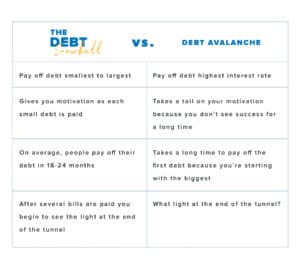
As you pay off each bill of debt try following the avalanche method. This method has you pay off the debt with the highest interest first and then take that payment and apply it to the next high interest debt. You continue to do so until everything is paid off. This is a great method to use but can be a bit more difficult with those of us receiving unreliable or unsteady income.
For that reason, I prefer to use the snowball method. With the snowball method you focus on the smallest debt first. Not only can you often pay something off quicker but you also get that satisfaction quicker of knowing you knocked some of your debt out. This can often help keep you excited about paying things off and continue to do so.
Ready?
Get your debt list going! Gather all your debts owed except any mortgages. List them out with the amount owed and monthly payment. If you are opting for the avalanche method be sure to get the interest rate as well. Organize your list based on which payment method you will be using. Then start tackling that debt!
We followed Dave Ramsey’s plan initially and have tweaked things as we have gone along. With the plan we were able to knock out several credit cards, a personal loan and our truck. The thing is, if you want the plan to work and continue to work, you need to stick to it and then continue following it!
What happened is that we did not…we upgraded our trailer to a brand new one, rolling our loss in to the payment. We bought a used vehicle but used financing. The only thing we have maintained regularly is our savings.
Looking for a boost?
Pick up a side job or two to help pay down that debt or house even faster! There are quite a few different options for finding flexible jobs that work with our travel. If you need some help finding ideas, check out my post here!
Let’s recap…consider having a plan to buy a home before leaving the pipeline so that you are not scrambling when it is time to come off the road.
Follow these tips to get you started:
- Pay down debt
- Save at least 6-8 months expenses
- Find your dream home and purchase
- Consider renting out home to help pay it down
- Pay off your dream home or at least half by the time you want to stop working on the road
Let me know if you have done this, are planning to or have different ideas! I love hearing from you so please leave a comment below!
As always, thanks for reading!
–Kate
